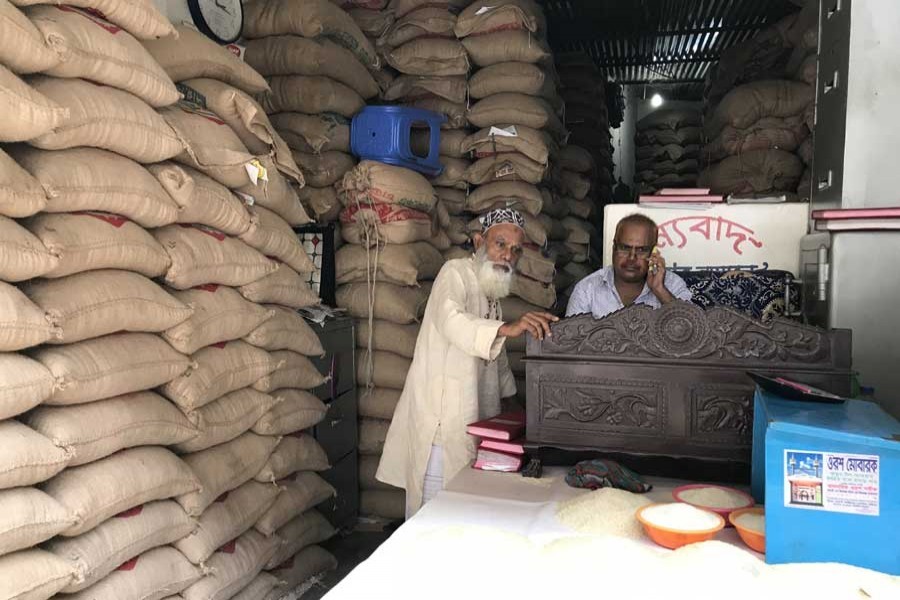
Published :
Updated :

Some 0.80 million tonnes of boro rice currently stored in various government-run warehouses across the country may turn non-consumable within a short period of time. The piece of news appeared in a vernacular business daily, the Bonik Barta to be precise, last week. This indicates the poor capacity of the country's food-grain storage system. According to the report, the Directorate General of Food under the Ministry of Food has already instructed all the line agencies in the district levels to release the stored rice from the warehouses to keep the minimum required quality for consumption.
Procuring and storing food grains especially rice is a core function of the directorate. Doing things smoothly is a necessary task to ensure food safety in the country. Generally, food safety refers to the right handling and storing of food. Thus, the food needs to be preserved in a scientific way in the storehouses to prevent contamination. Releasing or delivering process of the stored food to the market also needs to be non-contaminated so that it is free of food-borne diseases.
Now, that the food directorate moves to release the boro rice from the warehouse at a faster rate indicates that food security has already been compromised to some extent. Most of the food warehouses are old and spaces are also limited. There is also a lack of proper maintenance in some cases. Sometimes moisture inside the warehouses poses the risk of contamination. Moreover, boro rice is not storable for long.
The question is, how fast the agencies will be able to release the rice and to where? This rice is stored to distribute for the government open market operation at a subsidised price as well as for other programmes like food for work, test relief, vulnerable group feeding etc. The stored rice is disbursed according to the demand placed by the concerned government bodies. A bulk amount of some 14 million tonnes of procured rice in the store means that there are either less demand or the supply process is slow.
As the price of rice in the domestic market witnessed a consistent rise for the last couple of months creating inflationary pressure, the government has also tried to expand its open market sales of food items. Rice is, however, absent in many cases and low-income people have to suffer a lot.
When there is a good amount of rice in store, it is difficult to comprehend what deter the government agencies to release the rice from the storehouses at a faster rate for supply. Nevertheless, rice is still pricy in the local market and a quicker release of the said boro rice from the different warehouses in the country may help ease the price pressure to some extent.
A critical message on the development is that the government needs to review the procurement, storage and distribution mechanism of rice immediately. There is also a need to invest in developing modern silos in the country as well as better distribution channel.
asjadulk@gmail.com


 For all latest news, follow The Financial Express Google News channel.
For all latest news, follow The Financial Express Google News channel.